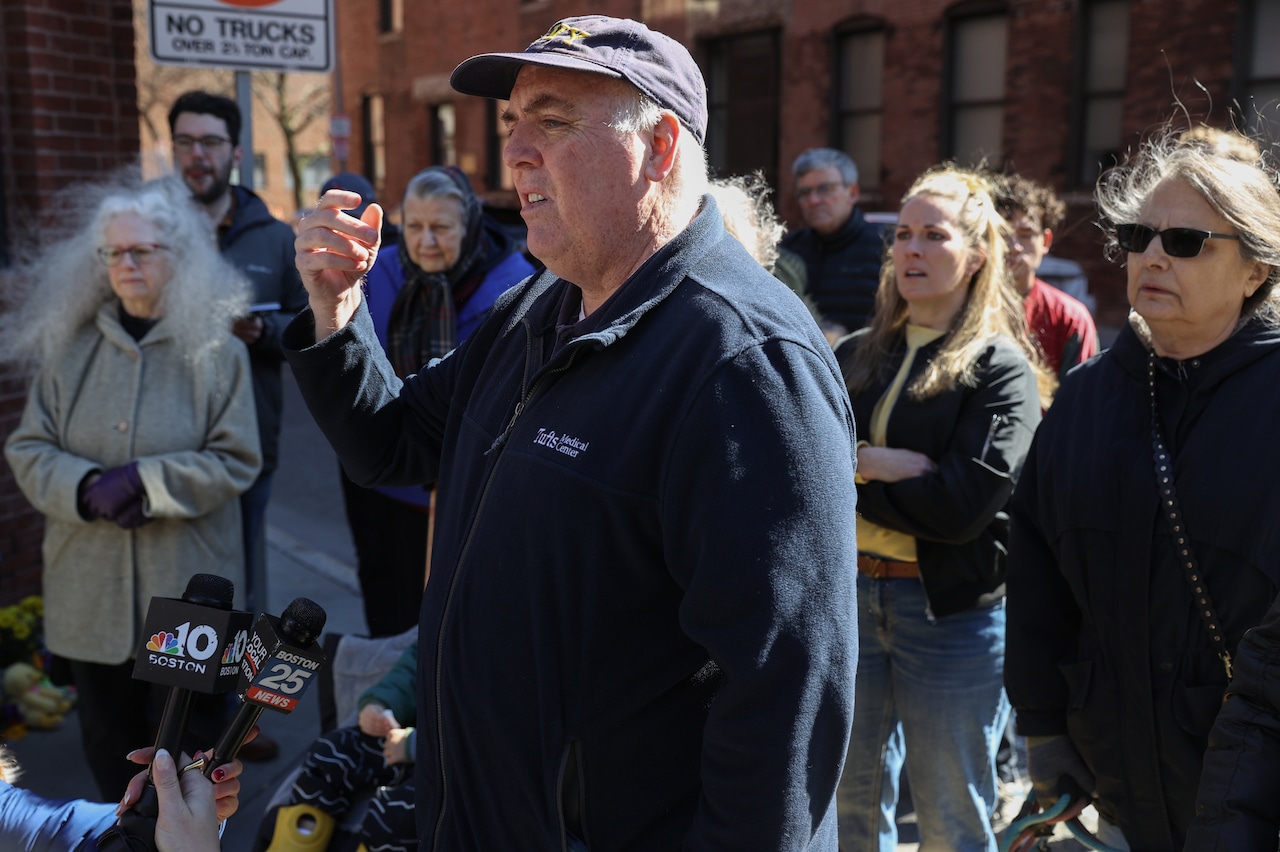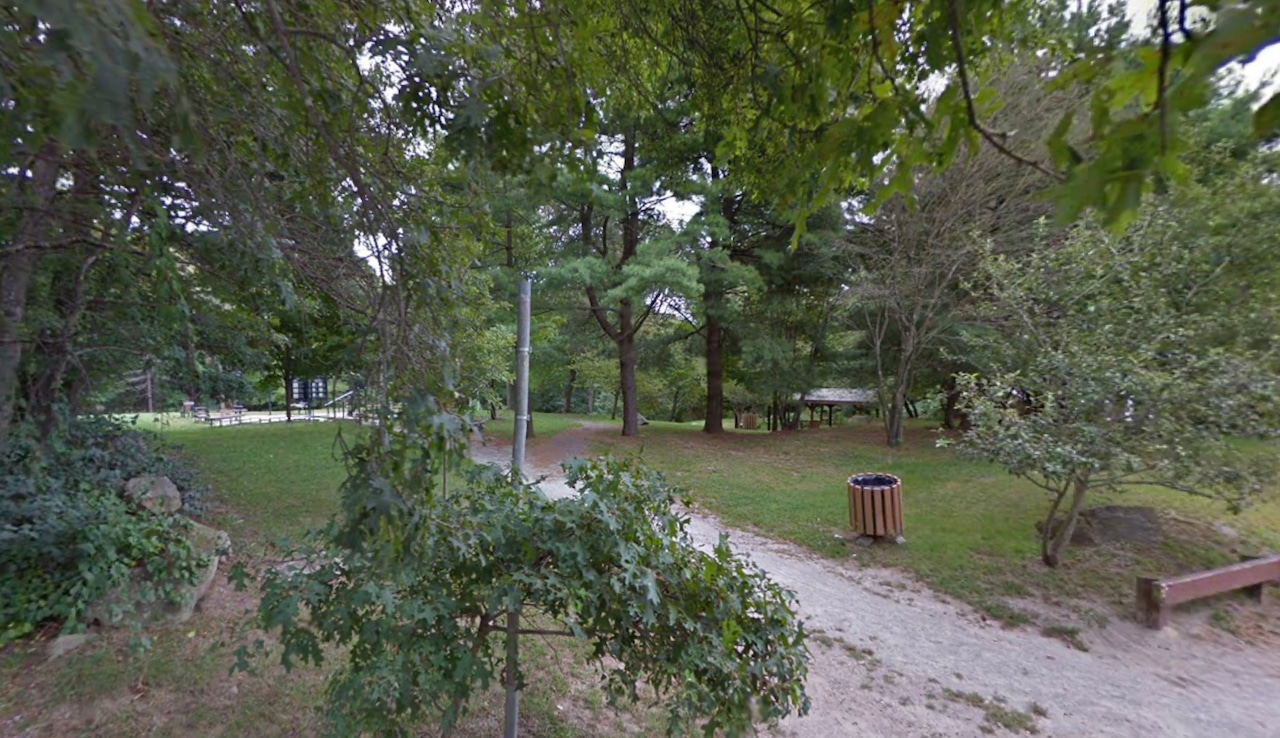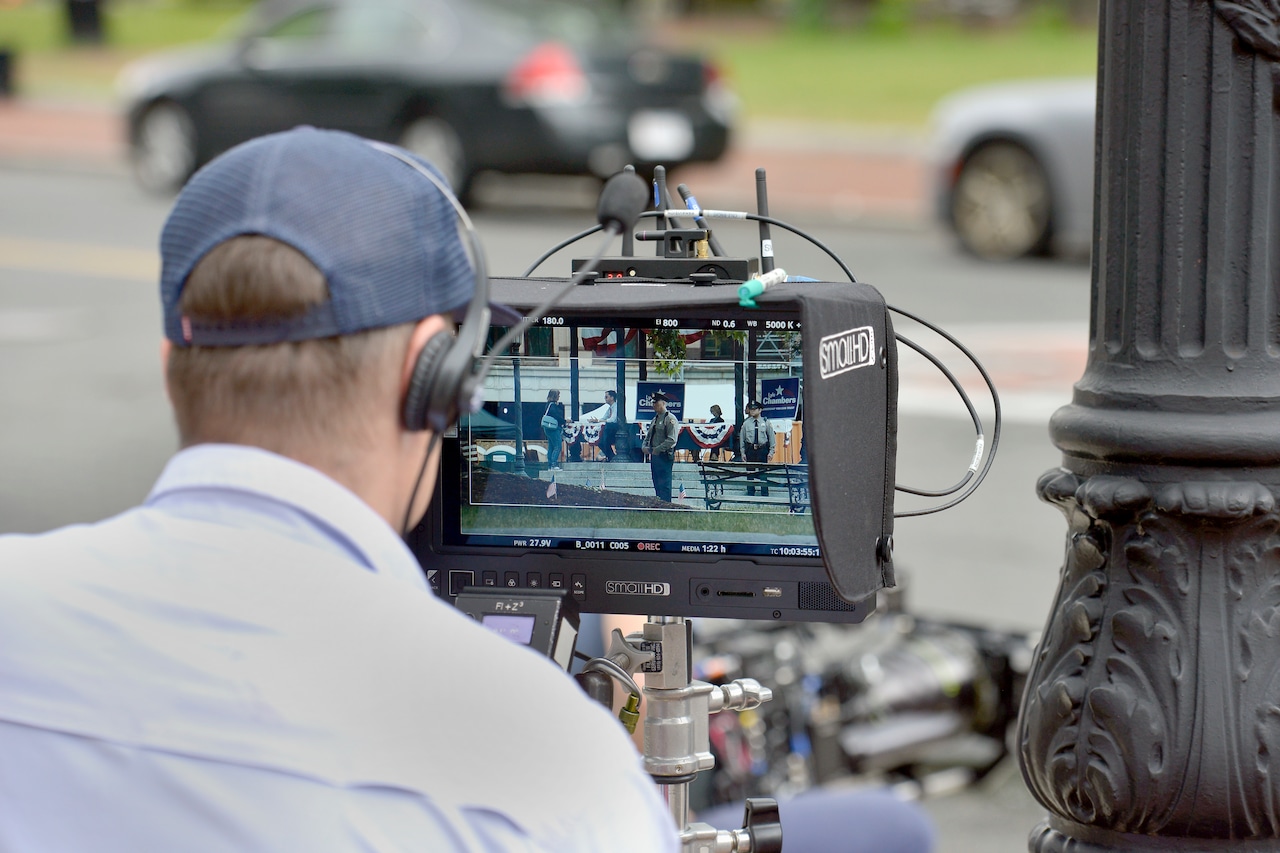
In the wake of a pair of pedestrian deaths in the city, Boston City Councilor Ed Flynn is calling on the city to take a hard look at pedestrian safety, including lowering the city-wide speed limit from 25 mph to 20 mph or even 15 mph.
Flynn proposed the idea during a council meeting this week, spurred on by the deaths of 4-year-old Gracie Gancheva in the Seaport and Fernando R. Pizarro, a 57-year-old wheelchair user, in South Boston.
Gancheva was killed on March 24. Pizarro’s death came just over a week later on April 2. Pizarro’s death marked the fourth pedestrian death in the city in 2024. No criminal charges have been brought against the drivers in either death.
The intersection where Gancheva was killed — Congress and Sleeper streets — had previously been identified by city officials as in need of safety upgrades.
Potentially underscoring the urgency for city officials, a pedestrian was rushed to the hospital with life-threatening injuries after being hit by a truck near South Station Thursday morning.
“Twenty-five miles per hour is excessive driving through a dense neighborhood in Boston,” Flynn, who represents parts of Chinatown, Downtown, South Boston, and the South End, told fellow councilors. “Driving 25 miles per hour in residential streets is unhealthy, it’s unsafe.”
“[The speed limit] should be 20 miles per hour, I even think it should be 15 miles per hour,” he added.
While Flynn was the only member of the body to suggest altering the speed limit, there was unanimity from councilors about the fact that some action needed to be taken to address pedestrian safety.
Beyond just the speed limit, Flynn advocated for the city to invest in “traffic calming infrastructure” such as speed humps, raised crosswalks, pedestrian islands, flashing beacons, and curb extensions.
He also expressed frustration with the city’s failure to take action on concurrent traffic signals, giving cars and pedestrians the right of way at the same time, which he dubbed a “recipe for disaster.”
Flynn added he was “not sure why we still have this in our city.”
Boston did take action in 2023 by launching its “Safety Surge” initiative, investing in speed humps on certain neighborhood streets, redesigned intersections and new guidelines for traffic signals.
Flynn acknowledged the work of that initiative, but said the city’s investments needed to go beyond neighborhood streets.
It is “wider streets and busier streets where cars and commuters are consistently speeding and serious crashes also occur,” he said. “Our neighborhood main streets, commercial roads, high traffic corridors, bus routes are often dangerous for pedestrians to cross and should also have traffic calming infrastructure in place to force speeding vehicles to slow down.”
Councilor John FitzGerald, who represents parts of Dorchester and the South End, and a co-sponsor of Flynn’s order to hold a hearing on pedestrian safety, underscored the tragedy of Gancheva’s death.
As a parent, it represented the “worst nightmare scenario,” he said. FitzGerald said the “worst part” of a pedestrian dying because of a vehicle is the fact that it likely could have been prevented.
With the number of police officers available to work traffic details on the decline, FitzGerald suggested technology could fill the gap.
“I’m no fan of Big Brother but there’s gotta be a way,” he said.
FitzGerald was not the only councilor to suggest the implementation of technology to curb bad behavior from drivers.
Councilor Enrique Pepén, who represents areas of Hyde Park, Roslindale, and Mattapan, pointed to Providence, R.I., as a potential model for Boston in the use of red-light cameras as a means to ticket bad actors.
“I want to push our legislature to consider that and make it possible for us to do that,” he said. “What’s happening here, it’s too much for the city of Boston.”
Councilor Benjamin Weber, who represents Jamaica Plain and West Roxbury, lamented the fact that it took tragedy to spur action on the part of city officials.
“It’s a terrible thing that it took two recent fatalities and the death of a 4-year-old for us to deal with this,” he said. “This should not be happening.”






